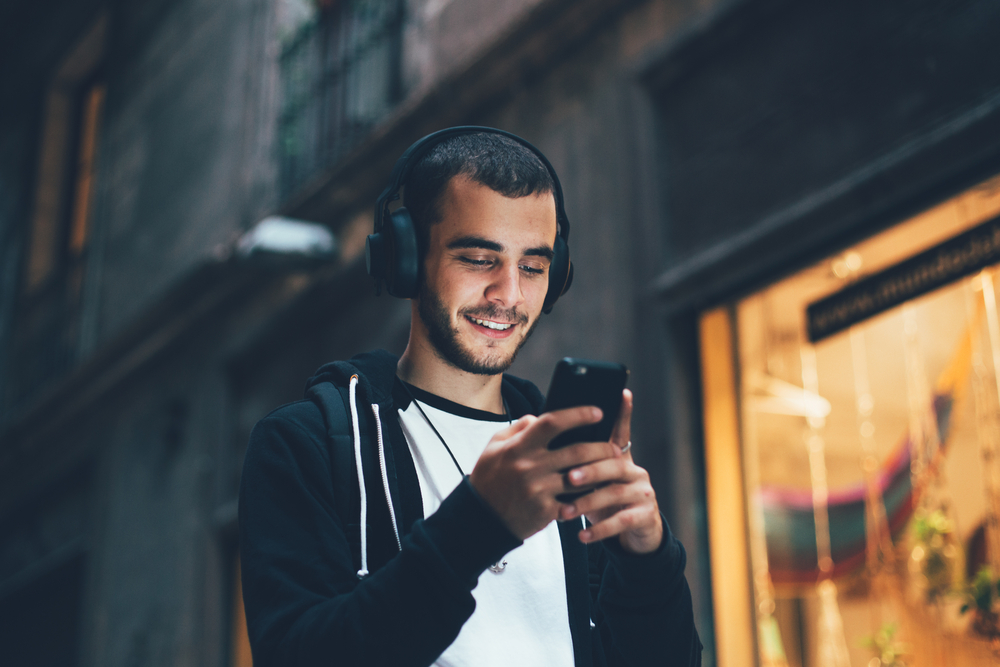
James is a music enthusiast who has mastered the art of incorporating his favored music into his daily life, easily transitioning from Spotify at his desk to Pandora on his runs, and carefully crafting playlists to perfectly complement every activity, whether he’s working out, whipping up a meal, or immersed in a gaming session. He’s seldom observed without his headphones, which have become an essential part of his daily life, transforming every moment into an individualized audio adventure. James takes comfort and delight in the captivating world of music, but the very source of his happiness might be harming his treasured ability to hear without him recognizing it.
Concerning our ears, there are both safe and dangerous ways to indulge in music. Unfortunately, a, any us lean towards the second approach.
What is the link between extended exposure to music and hearing loss?
Extended exposure to loud music can lead to a decrease in your auditory function. Hearing loss is typically connected to growing older, but recent studies suggest that it is mostly caused by damage from exposure to loud noises rather than being a normal part of aging.
Younger individuals are more prone to noise-induced harm as their ears are still in the developmental stage. However, teenagers tend to ignore the possible hazards of excessive noise over time. A growing number of young individuals are experiencing hearing loss due to frequent use of loud headphones.
Is it possible to enjoy music safely?
Listening to music at full blast without any limits is the most dangerous strategy. There is a way to enjoy to music more safely, which typically means reducing the volume. The suggested safe volume levels are usually as follows:
- Adults should restrict their device listening time to 40 hours or less and ensure the volume remains under 80 dB.
- For Teens and Minors: You can still listen for 40 hours, but keep the volume level below 75 dB.
Forty hours week is about five hours and forty minutes a day. That might seem like a lot, but it can go by rather quickly. In spite of this, most individuals have a well-developed awareness of time management, a skill that is generally mastered during early childhood.
The more challenging part is keeping track of your volume. On most smart devices, computers, and televisions, volume is not measured in decibels. It’s gauged on some arbitrary scale. The range could be as broad as 1 to 100, or it could be as narrow as 1 to 16. You might be unaware of the maximum volume range of your device or how close you are to reaching that limit.
How to properly track your music volume
Several free noise monitoring apps can be found for both iPhone and Android devices to address this problem. These apps offer immediate feedback on surrounding noise levels, allowing users to fine-tune their listening volume to safe levels.
That’s why most hearing specialists encourage the use of one of many free noise tracking apps. These widely obtainable apps, compatible with both iOS and Android platforms, supply instant sound-level feedback on the ambient noise around you. In this manner, you can monitor the decibel level of your music as it plays and make changes as necessary.
A volume comparison: garbage disposals and more
By way of illustration, 80 dB is roughly comparable to the noise emitted by a common garbage disposal or dishwasher– audible, yet not overly loud. Identifying this volume level is important because it marks the point at which hearing loss becomes a real and tangible concern.
So, being extra cautious when surpassing this decibel threshold is important. Think about decreasing your exposure to exceedingly loud music by listening to certain songs at the highest volume instead of listening to entire albums.
Prolonged exposure to loud sounds can result in hearing problems, including ringing in the ears, or tinnitus, and potentially irreversible damage to one’s hearing. By being aware of when our ears are at risk, we allow ourselves to make informed decisions in order to encourage safer listening habits.
Book an appointment for a hearing assessment
For better prioritization of your hearing health, it is recommended to consult a hearing professional to schedule a comprehensive hearing exam. Taking practical actions like regular screenings can identify possible problems at an early stage, enabling prompt actions and tailored advice to safeguard your valuable hearing.